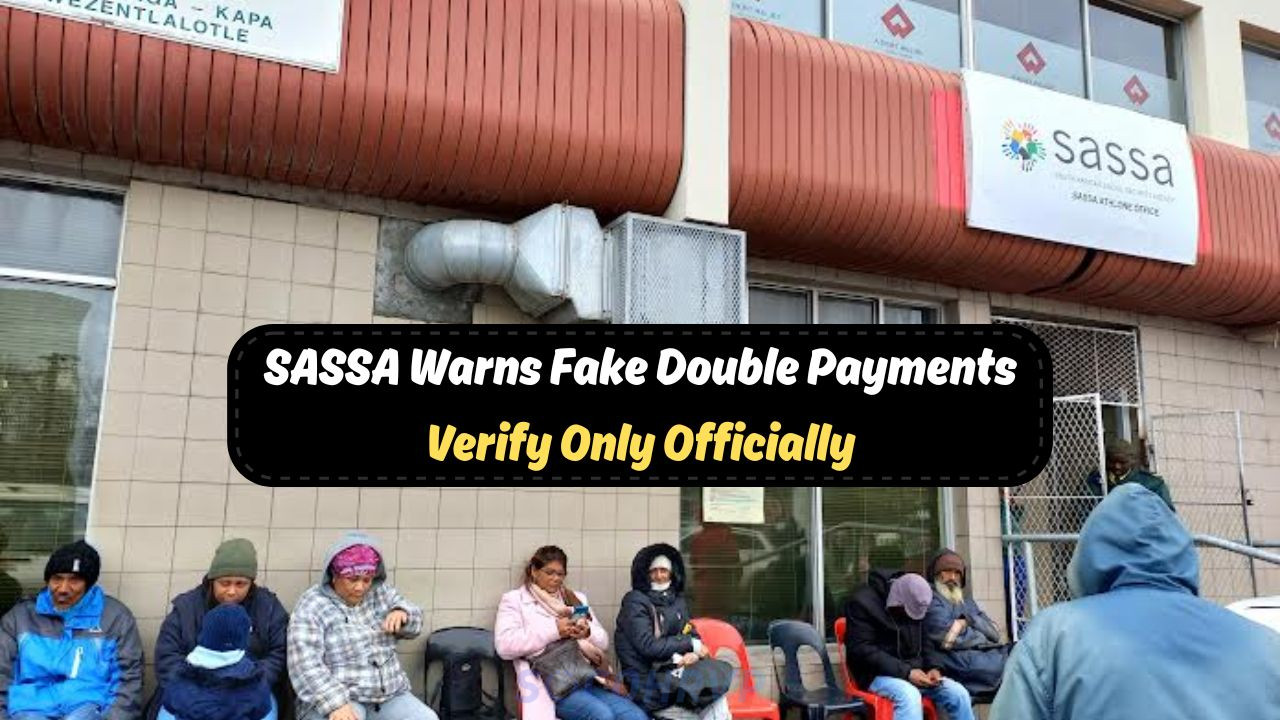R350 Double Payment Scam on WhatsApp: South Africans are being urged to stay vigilant as a new scam concerning the R350 Social Relief of Distress (SRD) grant has emerged on WhatsApp. This fraudulent scheme promises beneficiaries a double payout of their R350 grant, enticing them with the allure of extra funds during these economically challenging times. As the South African Social Security Agency (SASSA) issues warnings, it’s crucial for all citizens to understand the risks and protect themselves from falling victim to these scams. The digital age has brought convenience, but it also opens doors for fraudulent activities that prey on the most vulnerable. Understanding how these scams operate is the first step in safeguarding your finances and personal information.
Understanding the R350 Fraudulent Scheme
The R350 SRD grant, introduced during the COVID-19 pandemic to support unemployed South Africans, has unfortunately become a target for scammers. These con artists exploit the financial desperation faced by many, promising a double payment provided beneficiaries follow specific instructions. Typically, the scam involves a WhatsApp message claiming to originate from SASSA, requesting personal details such as ID numbers and banking information. Some messages even direct recipients to click on a link to a fake website, further compromising their personal data. Understanding the modus operandi of these scams can help citizens identify and avoid them.
- Scammers impersonate SASSA officials.
- Messages promise double payments of the R350 grant.
- Victims are asked for personal and banking details.
- Fake websites mimic SASSA’s official platform.
- Unsuspecting individuals are lured by the promise of extra money.
- Personal data may be sold or misused.
- Financial losses and identity theft are potential outcomes.
How to Protect Yourself from WhatsApp Scams
As these scams become more sophisticated, it’s essential to arm yourself with knowledge and precautionary measures. Firstly, always verify the source of any message claiming to be from SASSA. Official communications will never ask for personal information over WhatsApp. Secondly, do not click on any links or download attachments from unknown sources. Keep your digital communication secure by activating two-factor authentication where possible. Report any suspicious messages to SASSA and inform your network to prevent further spread. Implementing these practices can significantly reduce your risk of falling victim to such scams.
- Verify the source of messages.
- Never share personal details via WhatsApp.
- Avoid clicking on suspicious links.
- Enable two-factor authentication on your accounts.
- Report fraudulent messages to authorities.
- Educate others about the risks.
SASSA’s Measures Against the Scam
In response to the growing threat, SASSA has ramped up its efforts to combat these scams through public awareness campaigns and tighter security measures. They have increased their presence on social media platforms, providing regular updates and guidance on how to identify and report fraudulent activities. Furthermore, SASSA has collaborated with law enforcement agencies to track down and prosecute those responsible for these scams. These efforts aim to protect the integrity of the SRD grant program and ensure that the aid reaches those in genuine need without being siphoned off by criminals.
 Act Fast: R2,000 Water Tank Subsidy Opens on July 10 – Secure Your Spot with Your Municipality Now!
Act Fast: R2,000 Water Tank Subsidy Opens on July 10 – Secure Your Spot with Your Municipality Now!
- Public awareness campaigns by SASSA.
- Collaboration with law enforcement.
- Social media updates and guidance.
- Increased security measures for data protection.
- Prosecution of offenders involved in scams.
- Continuous monitoring of scam trends.
Impact of WhatsApp Scams on South Africans
The impact of these scams on South Africans is profound, both financially and emotionally. Many victims are left with drained bank accounts and compromised identities, leading to stress and anxiety. The ripple effect extends beyond individual losses, undermining trust in digital communication channels and government aid programs. Communities that rely heavily on the R350 grant for survival feel particularly vulnerable. It’s imperative for all South Africans to remain informed and cautious, supporting one another in the fight against these pervasive scams.
 SASSA Child Grant Increase to R560 from July 4 – Ensure Your ID Submission Before the Deadline!
SASSA Child Grant Increase to R560 from July 4 – Ensure Your ID Submission Before the Deadline!
| Impact | Details |
|---|---|
| Financial Loss | Victims lose money from bank accounts. |
| Identity Theft | Personal data is compromised and misused. |
| Emotional Stress | Anxiety and trust issues in digital platforms. |
| Community Vulnerability | Undermines trust in government aid programs. |
| Increased Caution | Heightened awareness and precautionary measures. |
Recognizing and Reporting Fraudulent Messages
Recognizing fraudulent messages is key to preventing scams. Be wary of unsolicited texts that promise financial gains or request personal information. Authentic SASSA communications are typically formal and do not employ casual language or emoticons. If you receive a suspicious message, do not engage with it. Instead, report it to SASSA and delete the message to prevent any accidental interaction. Spreading awareness among friends and family can also help curb the spread of such scams.
- Beware of messages promising money.
- Look for formal communication styles.
- Do not engage with suspicious messages.
- Report to SASSA immediately.
- Delete potential scam messages.
- Inform your network about the scam.
Table: Common Characteristics of Scams
| Characteristic | Description |
|---|---|
| Unsolicited Contact | Random messages from unknown numbers. |
| Urgency | Pressure to act quickly. |
| Request for Information | Asking for personal or banking details. |
| Too Good to Be True | Promises of large sums of money. |
| Unusual Links | Links leading to fake websites. |
FAQs on R350 WhatsApp Scams
How can I confirm if a message is from SASSA? Always verify directly through official SASSA channels or their website.
- Can I trust links sent via WhatsApp for my R350 grant? No, always access SASSA services through their official website.
- What should I do if I suspect a scam? Report it to SASSA and do not engage with the message.
- Are there legal actions taken against scammers? Yes, SASSA works with law enforcement for prosecution.
- How can I protect myself from scams? Educate yourself, enable two-factor authentication, and report suspicious activities.







